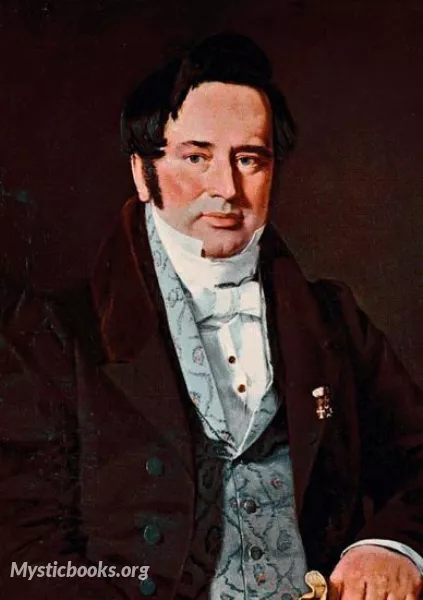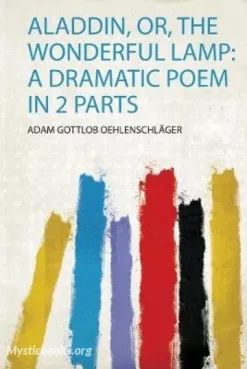
Timeline
Title
Country/Nationality
Adam Oehlenschläger
Adam Oehlenschläger was a Danish poet, playwright, and literary critic, born on November 14, 1779, in Vesterbro, Copenhagen. He was the leading figure of the Danish Romantic movement and made significant contributions to the Scandinavian literature scene. This essay will focus on the life of Adam Oehlenschläger, his principles, notable works, philosophy, and how he is remembered.
Adam Oehlenschläger grew up in a poor family but showed early signs of being an excellent student. He studied at the University of Copenhagen, where he became interested in German Romanticism and the works of Goethe and Schiller. He was also influenced by the Danish philosopher, N.F.S Grundtvig.
Oehlenschläger's writing principles were based on the Romantic movement's principles of freedom, individualism, and the beauty of nature. He believed that poetry should reflect the innermost thoughts and feelings of the poet, which should be expressed in a language that was natural and spontaneous. He believed that poetry should be a means of self-expression rather than a tool for moral instruction.
Adam Oehlenschläger was famous for his poetry, plays, and literary criticism. His works were marked by his romantic sensibility and deep understanding of human nature. His notable works include "Hakon Jarl," "Aladdin," "Correggio," and "Axel and Valborg." "Hakon Jarl" is an epic poem about the struggles between Christianity and paganism in medieval Norway. "Aladdin" is a play based on the Arabian Nights, and "Correggio" is a historical tragedy. "Axel and Valborg" is a romantic play set in Denmark during the Middle Ages.
Adam Oehlenschläger's philosophy was based on the idea of the individual's search for meaning and the pursuit of happiness. He believed that people should be free to express themselves, and that the beauty of nature should be celebrated. He also believed in the importance of the imagination and its ability to create new worlds and experiences.
Adam Oehlenschläger died on January 20, 1850, in Copenhagen, Denmark. He is remembered as one of Denmark's most significant literary figures and one of the leading lights of the Scandinavian Romantic movement. His works continue to be studied and celebrated for their beauty and depth.
One interesting fact about Adam Oehlenschläger is that he was not only a writer but also a musician. He composed several songs, including the famous "Danmark, nu blunder den lyse nat," which is now considered Denmark's unofficial national anthem.
In conclusion, Adam Oehlenschläger was a significant literary figure in Denmark and the Scandinavian Romantic movement. His principles, philosophy, and notable works have made a lasting impact on Scandinavian literature. He is remembered for his contributions to the field and his ability to capture the beauty of nature and the human experience in his writing. Adam Oehlenschläger's books are still read and studied today and continue to inspire new generations of writers and readers alike.
Books by Adam Oehlenschläger

Aladdin, Or, The Wonderful Lamp (A Dramatic Poem, in Two Parts)
It is a retelling of the classic tale of Aladdin and his magical lamp, which has captured the imagination of readers for generations. The book was first published in 1805 and quickly became one of Oehlenschläger's most popular works. It has since be...

Ausgewählte Gedichte
„Ausgewählte Gedichte“ bietet eine Auswahl an Werken des dänischen Dichters Adam Oehlenschläger. Oehlenschläger, ein bedeutender Vertreter der Romantik, war zu seiner Zeit äußerst populär, doch sein Werk geriet in Vergessenheit. Dieses Buch gewährt E...

Aladdin, Or, The Wonderful Lamp
This retelling of the classic tale of Aladdin is written in dramatic verse, offering a fresh perspective on the story. The play follows Aladdin, a young man from a humble background, who finds himself thrust into a world of magic and wonder when he d...